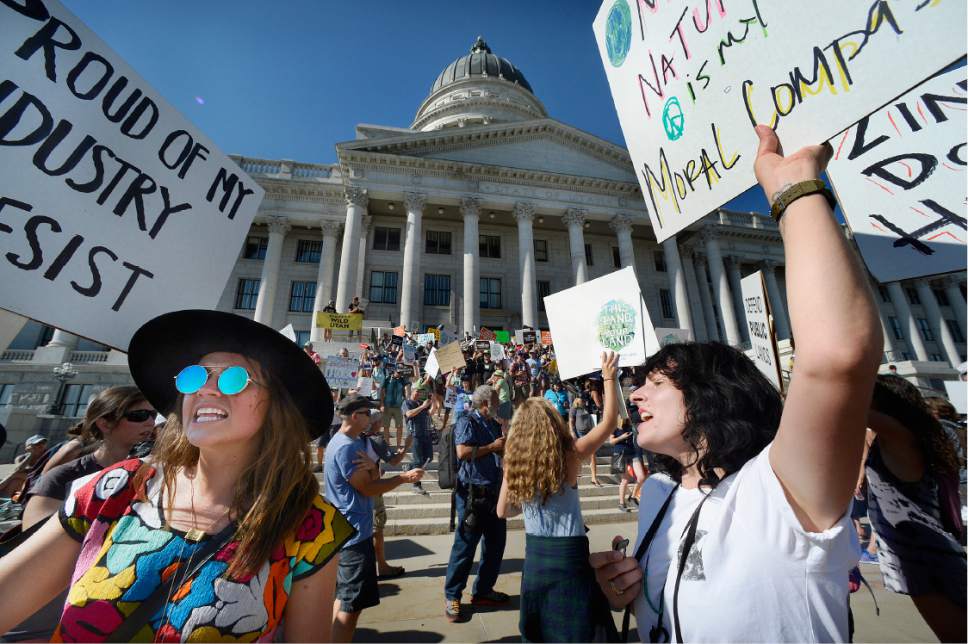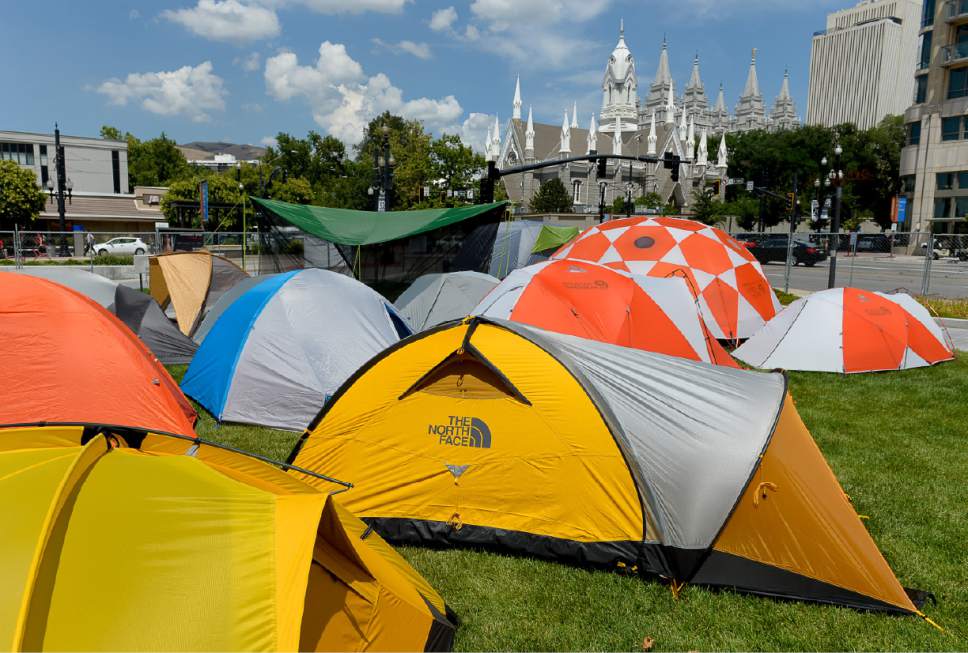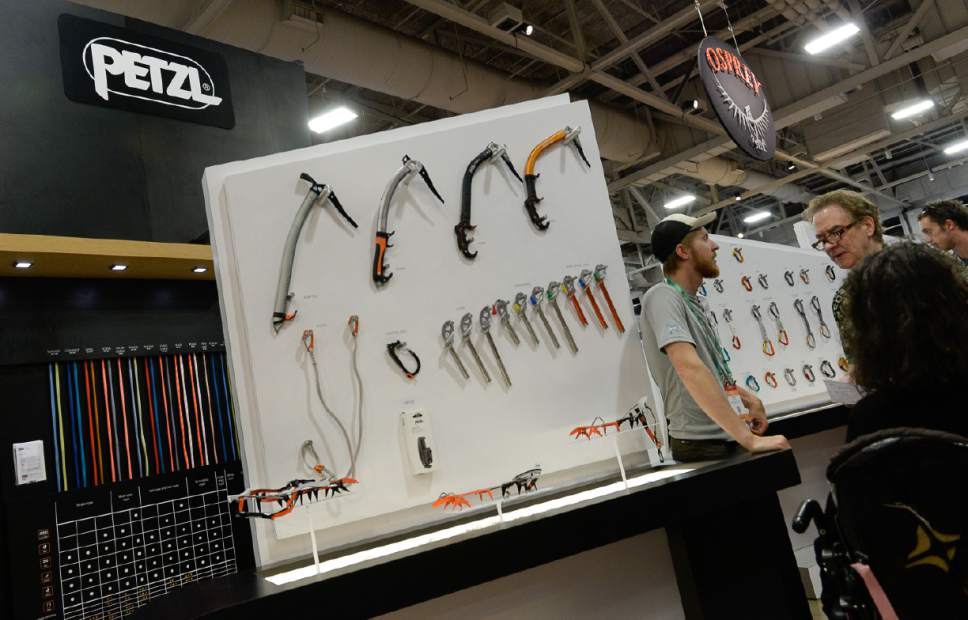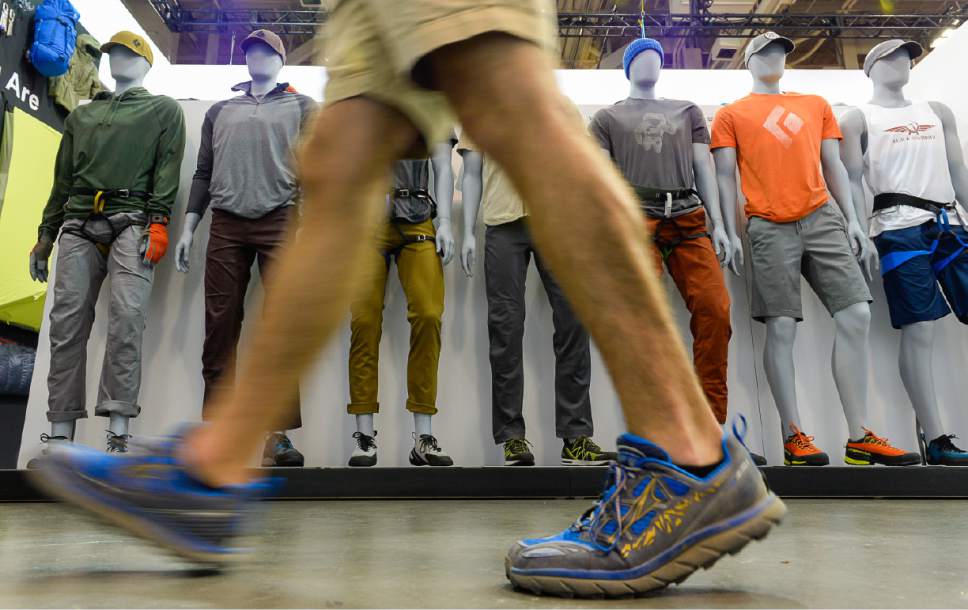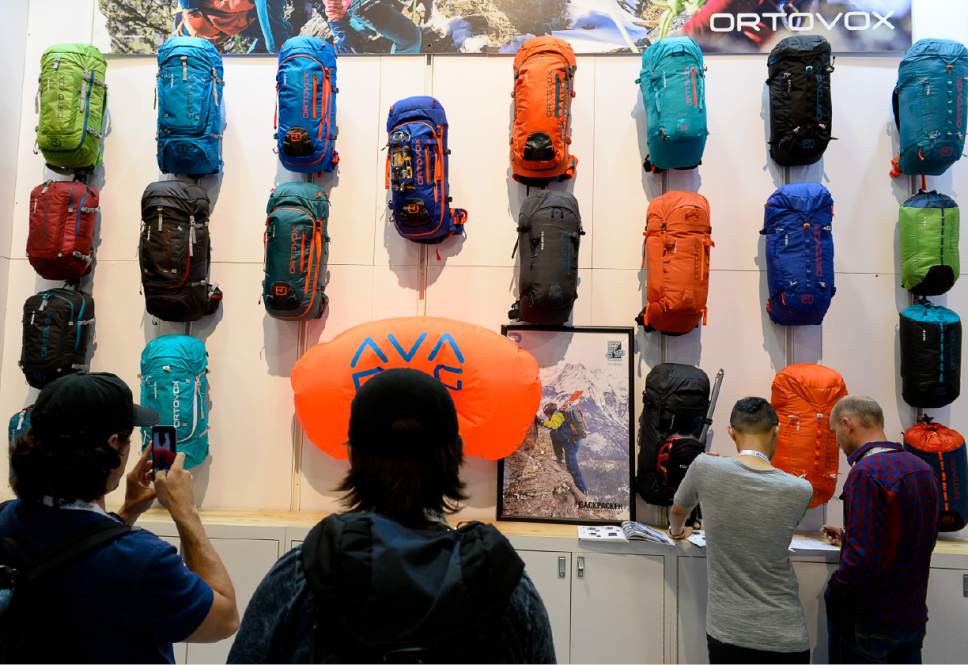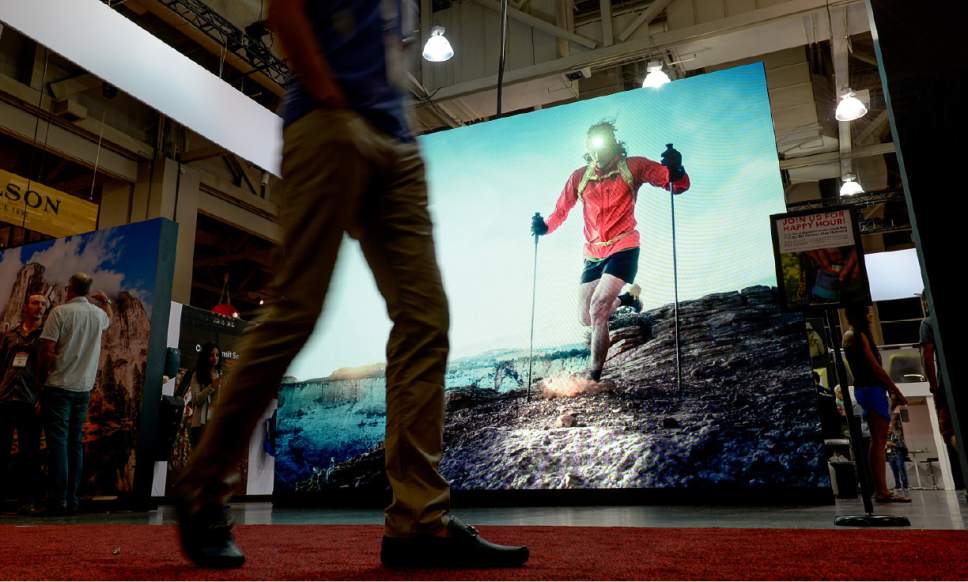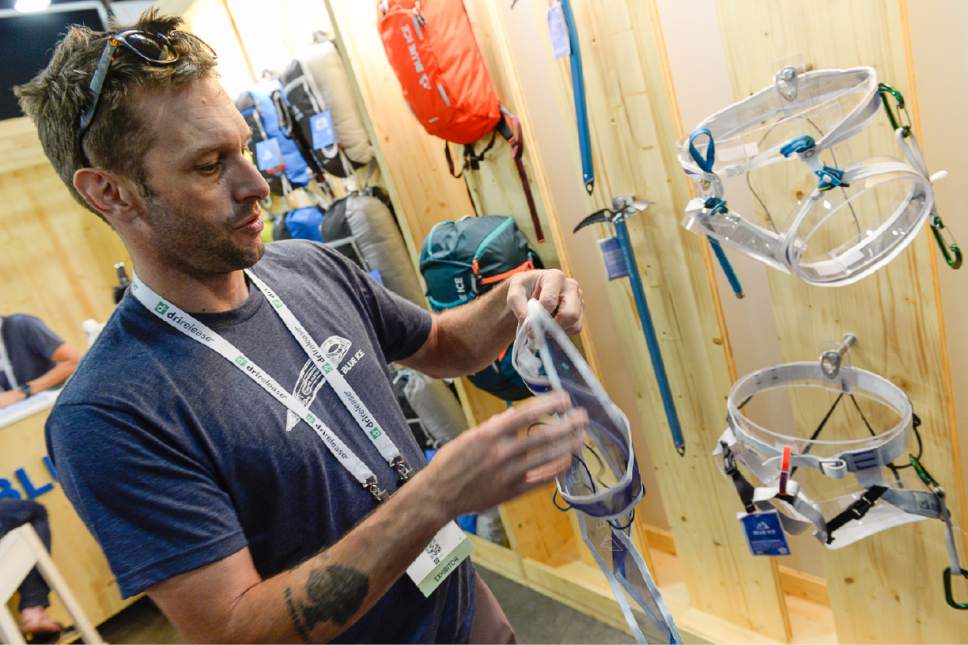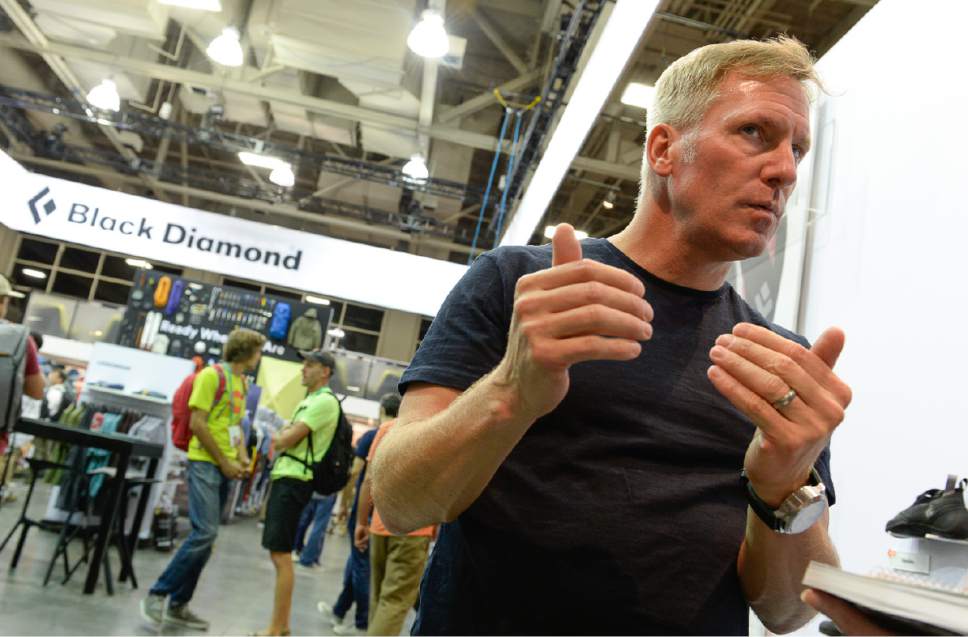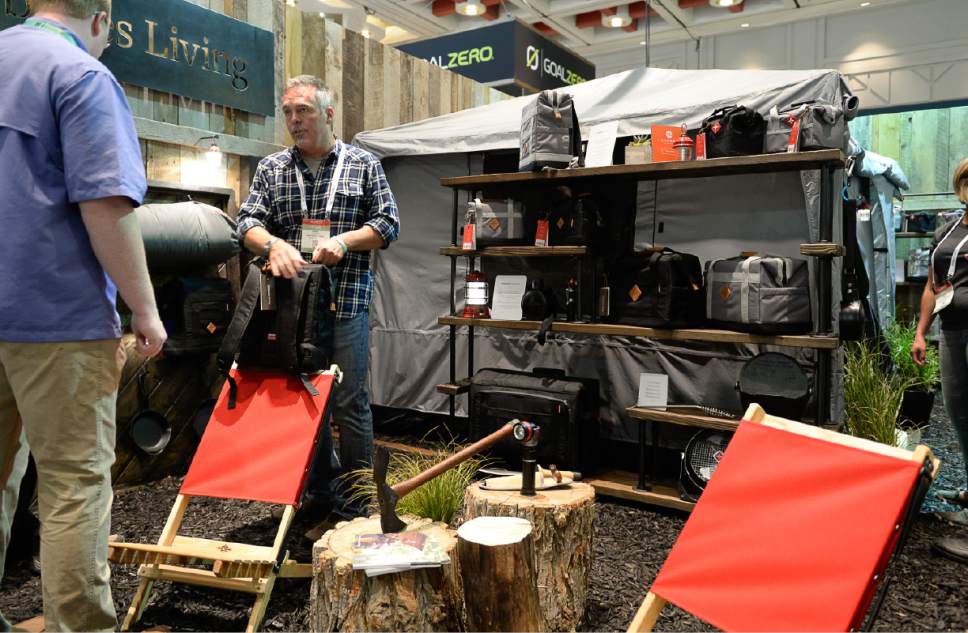This is an archived article that was published on sltrib.com in 2017, and information in the article may be outdated. It is provided only for personal research purposes and may not be reprinted.
"Unfortunate."
"Disappointing."
"A bummer."
Utah gear developers at the Outdoor Retailer convention running through Saturday at the Salt Palace shared a vocabulary to describe the relocation of the massive trade show from Salt Lake City to Denver.
But local exhibitors, reeling after public lands disputes prompted organizers to end the show's 22-year-run in Utah's capital, trace different paths to their mutual frustration.
"It seems like they've been looking for an excuse [to leave Salt Lake City]," said Austin Moyes, national sales manager for Logan-based Aquamira Technologies, which produces filtered hydration packs and water bottles. "To say that Utah is not an outdoor-friendly state is bogus."
Patrick Keller, marketing director for the Bluffdale portable power and lighting company Goal Zero, agreed.
"We think the name of Utah has been tarnished a bit in that endeavor … especially from out of state.
"As a Utah company, we're really proud of Utah," Keller said. "It's extremely important to protect public lands, [and] we acknowledge Utah is not perfect in that capacity. … [But] we're not agreeing to the villainous [reputation] we've been given."
Ties between outdoor-industry leaders and Utah political figures frayed in January as Utah's governor, Legislature and congressional delegation sought to have Bears Ears National Monument rescinded. President Barack Obama in December designated the 1.35 million-acre monument in San Juan County to protect ancient Puebloan ruins, popular hiking and climbing routes, and habitats for native plants and animals in areas considered sacred by multiple tribes in the Four Corners region.
Utah leaders appealed to President Donald Trump to eliminate or shrink the monument, and he has ordered Interior Secretary Ryan Zinke to review Bears Ears and 26 other national monuments for "abuses" of the Antiquities Act, which enables presidents to designate monuments.
Amid the pushback against Bears Ears National Monument and other public-lands disputes in Utah, multiple outdoor-gear makers threatened to boycott future Outdoor Retailer shows in the state unless local lawmakers changed their policy goals. One day after outdoor-clothing giant Patagonia spearheaded the boycott in February, the Utah Senate approved a resolution seeking a reduction of Grand Staircase-Escalante National Monument.
During a February conference call, which was recorded and later obtained by The Salt Lake Tribune, Gov. Gary Herbert accused outdoor-industry leaders of issuing an ultimatum and said, "We're going to have to part ways." Show planners said they would leave Salt Lake City, and Herbert's spokesman accused them of "gross ingratitude."
"Both sides came to the table thinking they had a better hand than they did," said Blue Ice climbing gear's Charlie Boas, chairman of the Utah Democrats' Outdoor Caucus. "Sometimes things have to break. It's bad for Utah, but as an advocacy-minded outdoors person, it seemed inevitable."
Bill Belcourt, who opened French company Blue Ice's U.S. office in Salt Lake City in part because of Outdoor Retailer, characterized Herbert's approach to the industry as scorched-earth and said local businesses have been smeared for the sake of partisan performance.
"The monuments in the end won't go away. So what was this all for?" Belcourt asked. "No one ended up getting anything in the end. It's polarized Utah: You're either for or against the outdoor industry. Listening to the rhetoric from the governor's office, the comments on articles about this, it says, 'Good riddance to the outdoor industry.' And I'm like, 'Hey, I live here, too.' I'm feeling like a bit of an outcast. Is it good riddance to all of us that make our living in the outdoor industry? To say to the outdoor industry, 'How dare you have an opinion on the state of Utah?' is ignoring that a good share of the industry is in Utah. That sort of parochialism, I don't expect that attitude from the governor."
He said a better solution could have been reached.
"These issues came up with Gov. [Mike] Leavitt, and he managed to negotiate this well enough to keep the show here, and keep both sides working together," Belcourt said. "It seems like Herbert blew it. … If anybody has the obligation to bring all sides together, it's the governor. I was expecting him to be able to work it out with the industry. I think the industry was just wanting him to soften his position."
Although Black Diamond's founder, Peter Metcalf, launched the campaign for Outdoor Retailer to leave Utah on principle in a Salt Lake Tribune op-ed during the show's winter market in January, the Holladay-based company's current president suggested some room for negotiation existed on both sides.
"I'm not sure that we understand all the dynamics of a trade show," John Walbrecht said. "There was a lot going on with that, for all sides. … I honestly believe that people probably had the right motives but in all cases I'm not sure that everybody understands all the information. Bears Ears was a [Black Diamond] product. We were a push behind it, protecting Bears Ears. I'm not sure we advocated as a brand that we thought it had to be 1.3 million acres, bigger than all the national parks of Utah combined. But it's a climbing mecca, we want to protect it and save access to it."
Bill Harmon, general manager of Goal Zero, said companies work with local politicians on land-use issues, and industry leaders should have consulted more with those businesses to determine whether their policy goals were truly hopeless before leaving the state.
"Nobody asked us," Harmon said. "Nobody talked to us about relocating."
Robert Workman, who founded Goal Zero after developing portable power devices in Ghana and now operates the Bluffdale-based luxury camp-gear manufacturer Barebones Living, said he worries that industry leaders were influenced by a contentious political climate when they decided to leave.
"No one seems to be able to come together," he said. "I think [leaving] was a problematic mistake."
But, he said, the outdoor industry is still better poised than other sectors to facilitate healing.
"Getting outside is the best medicine we could ever have," he said. "Getting outside together."
Twitter: @erinalberty —
Governor wishes OR well in new home
As the Outdoor Retailer show opened for the last time in Utah, Gov. Gary Herbert lamented its departure during his monthly news conference Thursday on KUED-TV.
"We tried mightily to find the win-win. What we ended up with was a lose-lose," he said, over fights with outdoor industry leaders about efforts by state politicians against the new Bears Ears National Monument.
"This has been more about political rhetoric and politics, and less about substance and about good policy," he said. "I think the state of Utah, by actual deed, shows that we do care about the public lands. We have enhanced the public lands. We spend more on conservation efforts in Utah than any other state in the Intermountain West."
He added, "We need to look more at what we are doing, and less at what is being said by a few shrill voices."
The governor said the state has "had a great run with the outdoor retailers — 22 years. They've increased their show by 600 percent." He added, "We're going to miss them. We wish them well in their new opportunities in Colorado. There are 18 million less public acres there."
— Lee Davidson


